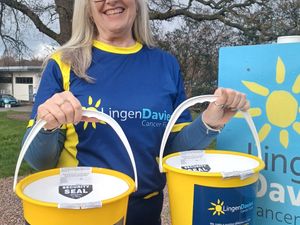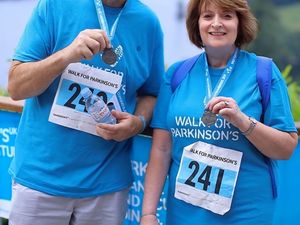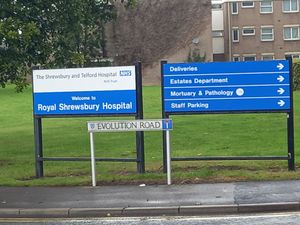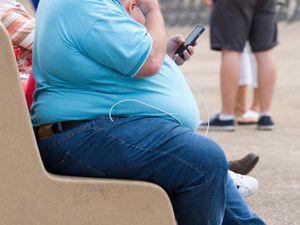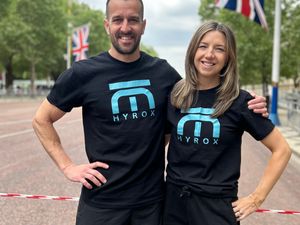Sam Gomm: A troubled Shropshire musician and his sister's fight in his name
Sam Gomm was the son of legendary singer-songwriter and guitarist Ian Gomm who co-wrote the famous song ‘Cruel to Be Kind’ with former Brinsley Schwarz bandmate Nick Lowe.
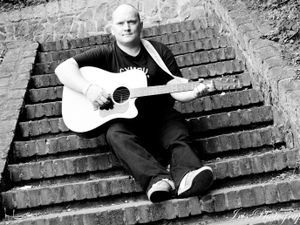
Like his dad Sam was also a talented musician living in Mid Wales and often gigged with his dad at the Wheatsheaf in Shrewsbury and other local pubs.
But his career was hampered by poor mental health. He was supported by his older sister Heidi who would attend appointments with him in Shrewsbury.
Life became unbearable for Sam and tragically, he wasn’t able to access the help he needed in time and he took his own life on June 3, 2019, aged 43.
After Sam died, Heidi wrote her little brother a letter promising that she would make sure that others wouldn’t have to suffer like him. She is determined to campaign for better mental health awareness to increase understanding and reduce stigma, as she says Sam suffered dreadful bullying in the small community where he lived because of his eccentricities.
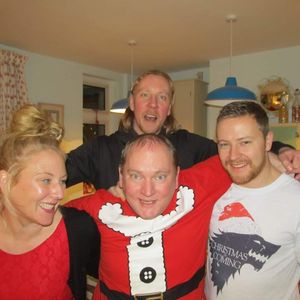
Heidi has plans to establish a contemplative memorial garden in Shrewsbury for people affected by suicide and has recently contributed a chapter to a new book ‘They Died Waiting: The Crisis in Mental Health – Stories of Loss and Stories of Hope' which has been compiled by mental health campaigner Caroline Aldridge. The book is the follow-up to Caroline’s first book ‘He Died Waiting’ about her son Tim, 30, who had bi-polar disorder and died in 2014.
Heidi’s story is a tragic tale of a young man living on the fringes of society, whose cries for help went unanswered in his time of need.
She says: “Sam was a brilliant footballer and a talented musician with an amazing voice, who also played the drums and guitar. He was abused by a neighbour as a kid and then got blood cancer in his early 20s and nearly died.
"He moved to Holland to do his music and had a girlfriend, a dog, a house and was becoming quite famous as a musician – everything was going right. Then he was diagnosed with bi-polar. His life was full of curve balls. When you have a series of traumas your brain collapses a little bit.
“Sam's care was not robust enough. Let’s put it like that. From the family’s point of view it was like a crash you could see happening in slow-motion. It went really horribly wrong.
"There was a meeting scheduled for the Thursday. He died on the Monday. He had been making calls for help to the crisis team, social services, anybody he could, all weekend. He was so lonely and isolated. We discovered he was writing messages to himself on Facebook from two different accounts.”
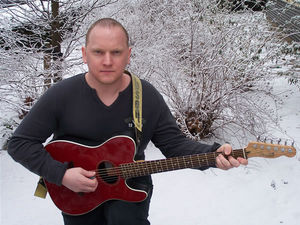
There was a three-day inquest into Sam’s death, but Heidi felt it was unsatisfactory: “The coroner did give some recommendations about flaws in the IT system that had affected Sam’s care. But apart from that, I would call it a whitewash.”
The major failings, as Heidi sees them, are fragmented services, a lack of communication between agencies and lack of supported living: “The struggle to get anyone to listen was real,” Heidi says. “When Sam died, I wrote him a really long letter. It was read out at his funeral. I had it placed in his coffin next to his heart. It said ‘I promise to fight for people like you Sam and not let anyone go through what you had to and I’m not going to stop. I’m going to keep fighting this to protect people like you’."
Heidi adds: “I was born with a sense of justice and a strong sense of right and wrong. I have to sort out anything I feel is unjust. As a health professional who worked in the NHS for 15 years, it somehow cut deeper, knowing what was supposed to happen, what could have been done…What happened to Sam appears to be happening to many people. It is heart-breaking to see the same patterns emerging.”
Heidi heard author Caroline Aldridge being interviewed on BBC Radio 4’s Women’s Hour and immediately got in touch with her own story.
Heidi says: “The point of my chapter is they (the mental health services) didn't even try to understand Sam and they dismissed us – the psychiatrists and health professionals didn't listen.
"We knew he needed to be in supported living. His thoughts would overtake him. He couldn’t self care. He needed to be around other people. He couldn’t be in a flat on his own. But it didn’t happen quickly enough. Sam made repeated cries for help, but it seemed that he had ‘too much mental capacity’ and in our opinion, he was not taken seriously as a suicidal person.
“After he died, we made a timeline of those months before his death. They paint a picture of a family desperately trying to get him well and keep him alive and protected.”
She accepts that Sam’s case was complex: “He was probably autistic. He had some learning difficulties, and he was quite eccentric. But he was a wonderful, wonderful person. He brought a lot. He left a legacy behind. In our local village where we grew up, Sam used to go with my parents to the butchers. One day, the girl behind the counter was sad, so he went back home and got his guitar and sang to her.”
In the book, Heidi relates some more of Sam’s ‘quirks’ – when he ‘borrowed’ a milk float to drive to Manchester and playing guitar in the village square in his underpants. She includes an excerpt from a doctor’s letter about Sam: “...this gentleman failed to attend his appointment because he has run away to the circus”. It was true – Sam had done exactly that. Sam also helped save The Brimmon Oak, which was named Welsh and British Tree of the Year in 2016, writing a song to accompany a petition.
“Sam’s legacy is his music,” Heidi adds. “The last time I visited him, I could see his light was fading. I took a black and white photo of Sam playing the grand piano there. His light had dimmed so much during the wait for the help he needed.”
The lyrics to Sam’s songs are heart wrenching. In Cyber Bully he says he feels like ‘walking on a tightrope, pulling me from both sides’ as he tries to hold on to sanity.
Heidi is keen to change attitudes towards people suffering from mental health problems: “People tend to be very introverted and put their own feelings first. Mental health can be scary, it’s not pretty. We need to accept more severe mental health in the community more than we do. People are locked away and ignored. There’s so much judgement.
“Dreadful things happened to Sam on a daily basis. Because he wasn’t like other people he was very badly bullied. Sam wasn’t safe to go out. People would hit him. I would say to people – be friendly, chat, be normal, even if it’s scary. Just be a nice person. That’s all people want. It can make all the difference. It feels like people like Sam skirt the periphery of society and don’t quite matter as much as the rest.”
Heidi also hopes to release Sam’s song ‘Love Will Find a Way’ written during his last psychiatric admission. She found a video of him singing it on his phone: “It’s truly beautiful and full of meaning – one of the best he ever wrote. We’d love it to be recorded by a top artist and used as a fundraising and suicide awareness tool.
"Sam was our ‘go-to' entertainment guy and it feels weird not to hear his chuckle or his beautiful singing voice.”
In her letter to Sam she promised: “I will fight for those like you, the vulnerable, the frightened and the proud... I will seek change and greater understanding in society to keep your memory alive through positive action…it’s the only choice we have.”
They Died Waiting calls upon readers to become agents for change.
Heidi adds: “It’s a book about loss and love and makes a powerful read. Its purpose is to influence improvements in mental health services and prevent deaths.”
They Died Waiting is published by Learning Social Worker Publications (Norwich) at £17.99 or you can find a copy at Shrewsbury Library, where a launch and readings are planned this month. Sam Gomm's music is available on YouTube @TheSammygmusic.

